by Luciana Novaes Magalhaes, Oliver Griffin and Sabrina Valle (Reuters) Oil major Shell (SHEL.L), opens new tab, the healthier joint-venture partner in Brazilian sugar and ethanol producer Raizen, is ready to pour more resources into a recapitalization of the distressed company, three
RFA’s Cooper Calls for Year-Round E15, Highlights Record Ethanol Production at 31st Annual National Ethanol Conference
(Renewable Fuels Association) Speaking to attendees at the 31st annual National Ethanol Conference in Orlando, Renewable Fuels Association President and CEO Geoff Cooper celebrated a record-breaking year for the U.S. ethanol industry while urging Congress and the Trump administration to fully unleash American ethanol to boost the farm economy, reduce consumer fuel prices, and strengthen domestic energy security.
Framing the industry’s current moment through the story of college football underdog Fernando Mendoza, Cooper compared ethanol’s untapped potential to the quarterback’s improbable rise to a national championship and Heisman Trophy. Mendoza’s journey—from overlooked recruit to national champion at Indiana University—underscored the theme of the conference: America’s ethanol industry is poised for even greater success if given the opportunity to compete on a level playing field.
“We saw glimpses of our industry’s potential last year, and 2025 was another good year for the U.S. ethanol industry,” Cooper said. “But we could have done so much more, if simply given the opportunity. More to lower fuel prices for consumers. More to reduce reliance on imported petroleum. More to clean up the air and reduce emissions. And more to create jobs and boost the farm economy.”
That opportunity, RFA emphasized, begins with eliminating outdated federal regulations that restrict E15 sales during the summer driving season. Despite bipartisan support and a broad coalition agreement that included the American Petroleum Institute, legislative efforts to secure permanent, nationwide year-round E15 sales narrowly failed in late 2024 and again in early 2026. And instead of adopting year-round E15, the House formed the E15 Rural Domestic Energy Council” to continue working on the issue.
House lawmakers serving on the council had pledged legislative action on year-round E15 by today, but as of this morning, no bill had been introduced. Cooper called on members of Congress to act swiftly, stressing that year-round E15 would lower fuel costs, strengthen U.S. energy security, and provide critical economic relief to farmers and working families. Cooper noted that a small handful of mid-sized refining companies is holding up progress on E15 and reform of the RFS program’s small refinery exemption (SRE) program. He said lawmakers are finding out “that there is simply no way to appease mid-sized refiners who continue to game the RFS system with SREs. Those refiners either want to maintain the status quo, or they want to blow up the RFS entirely—neither of those options is acceptable to the majority of liquid fuel and agriculture stakeholders.”
“Our message to the Council—and to every member of Congress—is clear: Year-round, nationwide E15 is an urgent priority for America’s farmers, energy sector, and working families—and it can't wait any longer. Unleash E15! Let’s get it done,” Cooper said.
The urgency comes amid record industry performance. In 2025, U.S. ethanol producers manufactured a record 16.4 billion gallons of renewable fuel. Domestic consumption reached 14.3 billion gallons—the highest level in six years—while exports surged to an all-time high of 2.2 billion gallons, representing one out of every eight gallons produced. The industry supported 317,000 jobs, generated $28 billion in income, and contributed more than $50 billion to U.S. GDP.
While federal E15 legislation remains stalled, the industry achieved a breakthrough in California, the final state to approve E15 as a motor fuel. Governor Gavin Newsom signed legislation legalizing E15 sales, though implementation is temporarily delayed by regulatory certification requirements involving vapor recovery equipment.
Cooper expressed optimism regarding proposed RFS volume obligations for 2026 and 2027 under EPA Administrator Lee Zeldin. The proposed rule includes the highest-ever renewable volume targets and maintains the 15-billion-gallon conventional biofuel requirement. RFA urged full reallocation of SREs to preserve the integrity of the RFS program.
According to Cooper, the industry is also closely monitoring implementation of the 45Z Clean Fuel Production Credit, which could spur renewed investment and innovation—provided final modeling and regulatory details offer clarity and fairness for ethanol producers.
Looking ahead, RFA highlighted expanding global export opportunities and emerging markets in maritime and sustainable aviation fuel, emphasizing ethanol’s potential to reduce emissions in hard-to-decarbonize sectors. “Ethanol is well-positioned as a broadly available, low-cost, low-carbon, and scalable alternative fuel for these markets,” Cooper said. “Expanding ethanol into these supply chains would provide new demand for our industry, generate new revenue streams for farmers, bolster rural economies, and strengthen American energy leadership.”
Concluding the address, Cooper called on policymakers to “fully unleash ethanol” and unlock the full potential of American biofuels—just as Mendoza’s hidden talents, overlooked potential, and relentless determination were finally unleashed during Indiana’s historic perfect season.
Click here for Cooper’s remarks as prepared, and here for his presentation. READ MORE
Related articles
- E15 Bill in Limbo as Ethanol Industry Pressures Congress -- Lawmakers miss deadline on year-round E15 as ethanol leaders warn of economic fallout for US farmers and fuel markets. (AgroLatam)
- E15 Legislation Stalls as Ethanol Industry Pushes Congress to Act (Successful Farming)
- Year-Round E15 Bill Still in Limbo -- Rural Council Races to Deliver Year-Round E15 Bill as Ethanol Sounds Alarm (DTN Progressive Farmer)
- Breaking: 2026 and ’27 renewable volume obligations sent to OMB (Brownfield Ag News; includes AUDIO)
- Year-round E15 bill still in limbo (DTN Progressive Farmer)
- E15 deadline arrives as industry awaits congressional action (Brownfield Ag News)
- RFA CEO Calls for Unleashing U.S. Ethanol (Energy.AgWired.com)
- 'Blow their phones up': Farmers call Congress to push for year-round E15 (Agri-Pulse)
- (MIssouri Governor Mike) Kehoe says E15 expansion would boost corn markets, urges Congressional action (Brownfield Ag News)
- EPA Official at NEC Delivers RFS News (Energy.AgWired.com; includes AUDIO)
- US EPA to finalize biofuel mandate, refinery exemptions by end-March (S&P Global)
- US biofuel blending mandate to be finalized by the end of March: EPA (Quantum Commodity Intelligence)
- RFA: Ethanol industry should be 'let off the leash' (Farm Week Now)
- GOP’s E15 Panel Stalls Amid New Pressure From Kansas, Biofuel Groups (Inside EPA)
- Kansas governor considers filing E15 petition with EPA (Ethanol Producer Magazine)
- E15 Is a Lifeline for America’s Farmers. Congress Must Act Before Farms Fail.(RealClearEnergy)
- Congress misses E15 deadline, Iowa biofuels advocates ramp up pressure (Des Moines Register/Ames Tribune)
- Exclusive: Trump EPA to shift at least half of waived biofuel obligations to big refiners, sources say (Reuters)
Excerpt from AgroLatam: The Feb. 25 deadline for the special congressional committee to move legislation to the House floor passed without action. While members continue drafting a proposal, details remain scarce. Industry observers say the stakes extend far beyond the fuel pump, directly affecting corn demand, commodity prices, and rural economic stability.
...
For corn growers and co-ops across the Midwest, year-round E15 is widely viewed as a demand driver capable of stabilizing yields-to-price ratios and supporting commodity markets amid broader uncertainty in global supply chains.
The E15 Rural Energy Council, composed of 20 legislators, faces a narrow political margin in the House, where leadership must weigh consensus versus unanimous support. Petroleum stakeholders are pressing for inclusion of reforms to the Renewable Fuel Standard's small-refinery exemption (SRE) program, a long-standing flashpoint between refiners and biofuel producers.
Industry representatives acknowledge the legislative path is complicated. Attaching E15 provisions to must-pass legislation remains the preferred strategy, although similar efforts failed in late 2024 when language was removed from an appropriations package at the last minute. With limited legislative vehicles on the calendar, prospects appear uncertain.
In the absence of federal action, several Midwestern states - including Iowa, Illinois, Minnesota, Missouri, Nebraska, South Dakota and Wisconsin - have secured Clean Air Act waivers to allow year-round E15 sales. Kansas could follow if Congress fails to act.
However, reliance on temporary summertime emergency waivers from the Environmental Protection Agency is viewed as an unstable solution. Retailers and fuel marketers warn that annual emergency declarations create regulatory uncertainty across the supply chain, complicating infrastructure investment and long-term planning.
RFS volumes offer cautious optimism READ MORE
Excerpt from DTN Progressive Farmer:
So far, little information has come out about the process.
"I do expect we're going to see a product soon," said Will Hupman, vice president of downstream policy for the American Petroleum Institute.
"I think we may see something as soon as this week, I know something's being drafted right now. The goalposts have moved on this a lot as they sort of talk with various stakeholders and they're trying to satisfy everyone."
Considering the council is working toward a consensus to include petroleum interests and small-refinery exemptions to the Renewable Fuel Standard, Hupman said the council made up of 20 members of Congress is faced with a difficult task.
"And I think sort of the real question here, if you keep in mind that there's a one-vote margin in the House or two-vote margin in the House is, are we seeking something that has unanimous support or are we seeking something that has consensus support?" he said during a panel discussion.
"I think that's an important distinction because I don't think unanimous support can't exist and will never exist."
...
There has been some discussion in recent months that if Congress decides not to act on E15 legislation, more states will seek special Clean Air Act waivers to be allowed to sell E15 year-round in their states.
So far Iowa, Illinois, Minnesota, Missouri, Nebraska, South Dakota and Wisconsin have received waivers, while Kansas may be next in line.
On Tuesday, Kansas Gov. Laura Kelly said if Congress does not pass E15 legislation, she may take the same action.
LEGISLATIVE HOPES
Troy Bredenkamp, senior vice president of government and public affairs for the Renewable Fuels Association, said the hope of the industry is to see an E15 bill attached to must-pass legislation, even after that approach failed in December 2024 when E15 was yanked out of an appropriations bill at the last minute.
"I can tell you from our perspective, we do not want to see a floor vote," Bredenkamp said.
"I mean, we all know E15 was never necessarily meant to be a standalone package. This was always meant to be a drop in onto a must-pass piece of legislation. We've never done a whip count on an entire U.S. House of Representatives. It's a very risky strategy, but if that's the road we have to go down, that's the road we will go down."
Looking at the legislative calendar for the current session, Bredenkamp said the chances to attach E15 to another must-pass bill seem slim.
"I don't see any new vehicles coming anytime soon," he said.
VIABILITY OF SUMMER WAIVERS
Doug Kantor, general counsel for the National Association of Convenience Stores, said although the U.S. Environmental Protection Agency in the Trump administration is likely to continue to grant temporary waivers of summertime E15 bans, that isn't a long-term solution.
"If we don't get legislation done, we're going to see some of the same exact dynamics as last year, right?" he said.
"That begins to raise all of these problems where some of our folks may get fed up with certain things. We've been surviving on summertime E15 on emergency waivers for what, five years now? At some point, some EPA is going to say, 'how is it an emergency every single year?' I mean, look, we've written them letters every year and said, it's an emergency. You've got to waive it so we can keep selling it. Sometime that becomes untenable."
RFS PROPOSAL TO OMB
The ethanol industry received good news on Wednesday (February 25, 2026), as EPA Assistant Administrator for Air and Radiation Aaron Szabo announced during the conference that the final RFS volumes rule has been sent to the Office of Management and Budget for review.
He said the agency expects the final rule to be released by the end of March.
...
Hupman said although the council's work on E15 continues to be "opaque," it is expected that a final bill could be like the "Nationwide Consumer and Fuel Retailer Choice Act" drafted by the ethanol industry.
"In terms of the overall impact, again, without seeing it, this is some expectation, but my expectations are that the council is going to land in a pretty similar place to our original design," Hupman said.
"Our sort of prognosis is that this council's gonna put together a product, it's gonna be legislation, they're gonna put it on the speaker's desk and say either all of us or most of us have signed off on this, but we don't yet know what happens." READ MORE
Excerpt from Brownfield Ag News: He (EPA Assistant Administrator for Air and Radiation Aaron Szabo) says the issue of small refinery exemptions slowed the process.
“Unfortunately, that added more complexity and work for our team, so this final rule is coming out later than we initially planned. We have not delayed this rule for any reason or by any request, this is really hard.” READ MORE; includes AUDIO
Excerpt from Ethanol Producer Magazine:
Kansas Gov. Laura Kelly on Feb. 24 announced she will consider petitioning the U.S. EPA to allow year-round sales of E15 within her state in the absence of Congressional action to allow year-round sales of E15 on a nationwide basis.
Kelly would not be the first governor to file such a petition with the EPA. The governors of several Midwestern states in April 2022 filed petitions with the EPA requesting that the agency remove the 1-psi Reid vapor pressure (RVP) waiver for summer gasoline-ethanol blended fuels, which would effectively allow E15 to be sold year-round within their states.
The EPA in February 2024 issued a final rule allowing E15 to be sold year-round in Illinois, Iowa, Minnesota, Missouri, Nebraska, Ohio, South Dakota and Wisconsin beginning with the summer 2025 driving season. The agency in February 2025 confirmed plans to uphold the rulemaking but said it would consider requests from individual states to delay implementation if the rulemaking by one year. Later that month, the EPA approved requests filed by Ohio and South Dakota seeking a one-year delay.
Ohio Gov. Mike DeWine in October 2025 filed a subsequent petition with the EPA asking to reverse course and reinstate the 1-psi volatility waiver within the state. The EPA in February 2026 approved his request. The Midwest E15 Rule, however, remains in effect in Illinois, Iowa, Minnesota, Missouri, Nebraska, South Dakota and Wisconsin.
In a statement released on Feb. 24, Kelly urged Congress to take action on E15 legislation and stressed that authorization of year-round E15 sales would boost demand for Kansas corn and grain sorghum while lowering gas prices for Kansans.
“While I have resisted opting out of the EPA waiver for the State of Kansas in favor of following the nationwide emergency waiver for the years of 2022 through 2025, the reliance on the granting of this emergency waiver continues to cause stress on our fuel retailers and agricultural industry,” Kelly said.
“Congress can eliminate this patchwork of regulatory relief by implementing a nation-wide solution to this issue and providing regulatory certainty for industry and lower gas prices for Americans,” she continued. “Failure to do so will continue to harm demand for Kansas corn and grain sorghum at a time when supplies are at record levels and prices are depressed.
“Further delay of a national solution to this issue by Congress will cause me to give strong consideration to submitting a request to join the eight other states who have received EPA approval to sell E15 year-round,” Kelly added. “The deadline to submit this waiver request is April 1, 2026.” READ MORE
Excerpt from Des Moines Register/Ames Tribune: U.S. Sen. Chuck Grassley said his constituents are also growing restless, sharing with him their frustration across 13 town hall meetings last week.
“It’s something that should’ve happened today based upon what we heard maybe a month ago now,” Grassley said during a Feb. 25 call with reporters. “And we’re hearing from farmers on this issue that they’re frustrated it’s not happening.”
...
Grassley said ethanol proponents and oil refiners remained at odds Wednesday.
“We’ve still got some things to work out, I’m sorry to say,” he said.
He expressed frustration with those oil refiners, saying both Democratic President Joe Biden and Republican President Donald Trump approved the summer sale of E15 during their administrations.
“I never heard from the small refineries,” Grassley said. “Now we’re hearing from them. And it seems to me that we’re hearing from some that don’t have any financial troubles, and they just want to get into the game.”
...
Iowa Democrats, who also have an eye on capitalizing on the issue ahead of a competitive midterm election, levied their own criticism against the state’s Republican delegation.
“Randy Feenstra, Ashley Hinson, Mariannette Miller-Meeks, and Zach Nunn have proven they’re too weak to deliver on the year-round sale of E-15, and it’s costing Iowa farmers dearly,” Iowa Democratic Party Chair Rita Hart said in a statement. “Iowa Republicans keep failing us on E-15, and every day that goes by without a deal is a reminder that we’re long overdue for new, independent leadership in Washington that gets results — not more of the same broken promises.” READ MORE
Excerpt from Reuters:
- ncreased blending obligations could increase cost burdens for larger refiners
- Reallocating waived obligations would boost demand for biofuel industry
- Final rule expected by end of March
The Trump administration has settled on a plan that would require big oil refineries to make up for at least half of the biofuel blending volumes obligations waived in recent years under the Small Refinery Exemption program, according to three sources familiar with the discussions.
The decision could be unwelcome news for larger oil refiners that have argued that additional blending obligations would raise their costs. But it could help the biofuel industry by boosting demand for blending credits.
...
Refiners, meanwhile, have warned that reallocation unfairly forces larger plants to cover for smaller rivals, raising their compliance costs and potentially increasing pump prices.
...
EPA officials in recent weeks have signaled they settled on reallocating at least 50% of the waived volumes for those three years, and that the level could go higher, according to the sources, who asked not to be named discussing the matter.
That reflects a shift in preference toward increased biofuels blending, after the Environmental Protection Agency last year initially sought public feedback on a range of options from zero to 100%, opens new tab. READ MORE / MORE
QUOTE OF THE WEEK -- Jim Lane
You do it for what builds in you — the knowledge that you showed up for something that matters, even when it was hard. Jim Lane, publisher of The Digest READ MORE
Ethanol Leaders Will Push E15, Maritime Fuel
(The Fence Post) The ethanol industry is frustrated over the lack of action on a bill in the House to legalize E15 gasoline nationwide throughout the year, and will also urge President Trump to support an international agreement that would pave
February 26, 2026 Read Full Article
Asia's Ethanol Targets and Recent Developments
(Reuters/Hydrocarbon Processing) More countries in the Asia-Pacific region are adopting ethanol blending with gasoline as they try to cut reliance on imported fuel and achieve carbon emission targets. Indonesia, Asia's largest gasoline importer, plans to impose a mandatory bioethanol content level of
February 26, 2026 Read Full Article
Autopsy of the Agrifood–Climate Tech Collapse
by Eugen Kaprov (The New Bioeconomy) Inside the database of 113 agrifood–climate failures since 2023 and the four patterns that explain them. -- René Magritte’s La Clairvoyance shows a painter looking at an egg while painting a bird. Not as it is, but as it
February 26, 2026 Read Full Article
Episode 56 – Khaki Is the New Green and Resilience Is the New Carbon with Jim Lane
by Cameron Begley (Tech Transfer Talk) In our first recorded abroad episode for 2026, I had the opportunity earlier this month to catch up in person with Jim Lane in Digestville, located in Key Biscayne, Florida. I hope that many of you recall
February 26, 2026 Read Full Article
Fundamentals of Thermochemical Conversion of Biomass --- August 24, 2026 --- Golden, CO
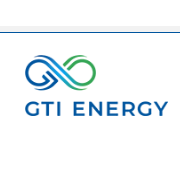
This 1-day course, directly before the tcbiomass+ conference, reviews the fundamentals of biomass conversion. This fundamental course will provide background information on feedstock preparation, gasification, pyrolysis, upgrading, and technoeconomics taught by experts from around the world. It is designed to help
February 26, 2026 Read Full Article
The Government Adapts the Regulatory Framework for Green Hydrogen Aid and Approves New Guidelines for the Decarbonization of Industrial Heat within European Auctions as a Service
(Ministry for Ecological Transition and the Demographic Challenge) In its second participation in the European Hydrogen Bank's AaaS scheme, Spain is contributing 440.5 million to finance more national renewable H2 production projects It is also contributing €50 million to the first European
February 26, 2026 Read Full Article
Siemens and CAPHENIA Accelerate Scale-up of Sustainable Aviation Fuel
(Siemens) Siemens becomes preferred automation and digitalization partner; Agreement aims at jointly accelerating the energy transition and covers broad scope of Siemens Xcelerator portfolio; Siemens supports CAPHENIA from pilot plant to commercial scale-up Siemens and the cleantech company CAPHENIA have entered a partnership to
February 26, 2026 Read Full Article
Eni: The Investment in the Development of Biorefining in Sannazzaro de’ Burgondi Is Confirmed
(Eni) Eni announces a further important strategic investment in biorefining. In addition to the Priolo project, the final investment decision (FID) has also been approved for Eni's plan to convert certain units of the Sannazzaro de’ Burgondi refinery (Pavia, Lombardy) into a
February 26, 2026 Read Full Article
Platts Discontinues Biodiesel FOB SE Asia Assessment from Feb. 25
(S&P Global) Platts, part of S&P Global Energy, has discontinued its Biodiesel FOB Southeast Asia daily price assessment and the associated PME versus Crude Palm Oil assessment, effective Feb. 25, 2026. The final publication date s of the Biodiesel FOB Southeast Asia
February 26, 2026 Read Full Article
Topsoe Selected by Petrobras for One of the Largest SAF Blending Component and Renewable Diesel Projects in Brazil
(Topsoe) • Petrobras has chosen Topsoe as technology provider for their potential new sustainable aviation fuel (SAF) blending component and renewable diesel project at the Boaventura Energy Complex in Itaboraí, Rio de Janeiro, Brazil. Petrobras will use Topsoe’s HydroFlex® technology, proprietary equipment
February 26, 2026 Read Full Article
Charting a New Course: The LEGO Group Unveils Collectible Maersk Dual-Fuel Container Vessel
(Lego) Set sail on a groundbreaking building voyage! The LEGO Group proudly introduces the Maersk Dual-Fuel Container Vessel, a meticulously detailed 1,516-piece set. This authentic model allows builders aged 12 and up to construct the pioneering Ane Maersk, a true icon
February 26, 2026 Read Full Article
Switch Maritime and Incat Crowther Advance 150-Passenger Hydrogen Fuel Cell-Electric Fast Ferry for New York and Beyond
(Incat Crowther) Global digital shipbuilder Incat Crowther has begun detailed development and naval architecture on a hydrogen fuel cell-electric fast ferry design, with initial deployment targeted for New York waters. Incat Crowther is working on the design and regulatory approval process
February 26, 2026 Read Full Article
Ecopro H&N Secures Core Carbon-Free Ship Technology
(Ecopro H&N (Google Translation)) - HD Korea Shipbuilding & Offshore Engineering and the Korean Register of Shipping jointly carry out a national project on eco-friendly ship technology. - Successful development of Korea's first large-scale ammonia engine purification system - By 2025 , 44%
February 26, 2026 Read Full Article
Mitsubishi Shipbuilding Ships First Unit of Equipment for Marine Ammonia-Fueled Engines -- Contributing to Decarbonization of the Maritime Industry with Ammonia Fuel Supply System and Ammonia Processing Unit
(Mitsubishi) The device can be remotely operated and automatically controlled, improving operational efficiency and safety. -- Mitsubishi Shipbuilding Co., Ltd. (President and CEO: Shin Ueda, Headquarters: Minato-ku, Tokyo, hereinafter "Mitsubishi Shipbuilding"), a Group company of Mitsubishi Heavy Industries, has shipped an Ammonia
February 26, 2026 Read Full Article
World-First Type Approval and Factory Acceptance Testing for Ammonia-Fuelled Two-Stroke Engine
(WinGD) Swiss marine power company WinGD has achieved a major milestone on the path to zero-carbon shipping with the completion of both Type Approval Testing (TAT) and Factory Acceptance Testing (FAT) of their ammonia-fuelled two-stroke marine engine. Both test programmes were
February 26, 2026 Read Full Article
"Development of Automated Liquefied Hydrogen Bunkering Technology" Adopted as NEDO Green Innovation Fund Project
(Kawasaki) Leading the world in the social implementation of hydrogen-fueled ships -- Kawasaki Heavy Industries, Ltd. announced today (February 20, 2026) that its proposal for the "Development of Liquefied Hydrogen Bunkering Automation Technology" (hereinafter referred to as "this demonstration project") has been
February 26, 2026 Read Full Article
RFOcean Secures First Long-Term e-Methanol Supply from ETFuels, Driven by FuelEU
(ETFuels) Shipping company locks in fixed-price e-methanol ahead of EU climate regulations -- RFOcean, a fully integrated European shipping company, has signed a binding long-term off-take agreement with ETFuels to purchase e-methanol at a fixed price from 2030. This is not a
February 26, 2026 Read Full Article
The Future of Electric Trucks Includes an Old-School Surprise: Gasoline
by Gary Gastely (Inc.) Scout Motors is seeing a surge of interest in electric trucks that also have generators on board. They’re not alone. -- Scout Motors surprised everyone when it unveiled its first production models in 2024. The Volkswagen Group-owned reboot
February 26, 2026 Read Full Article
RFA’s Cooper Calls for Year-Round E15, Highlights Record Ethanol Production at 31st Annual National Ethanol Conference
(Renewable Fuels Association) Speaking to attendees at the 31st annual National Ethanol Conference in Orlando, Renewable Fuels Association President and CEO Geoff Cooper celebrated a record-breaking year for the U.S. ethanol industry while urging Congress and the Trump administration to fully
February 26, 2026 Read Full Article
Bio-Attribution: Hype or Hyper-Sustainable?
(World Bio Market Insights) The world of biomanufacturing is full of technical terms that can be opaque to consumers. One of these is bio-attribution – a term that is everywhere yet rarely explained. What exactly does it mean? How does it differ from a bio-based
February 25, 2026 Read Full Article
NEXBTL™ Technology Turns Renewable Oils and Fats into High-Quality Products
(Neste) Neste is the largest producer of renewable diesel and sustainable aviation fuel in the world. This is possible thanks to our proprietary NEXBTL™ technology – a unique platform that allows us to turn a wide variety of renewable fats and
February 25, 2026 Read Full Article
How Federal Renewable Fuel Policies Support Farmers, Fleets, and the Environment - Part 2
by Kara Gundel (Engine Technology Forum) For nearly two decades, renewable fuels have quietly become one of the nation’s most practical tools for reducing transportation emissions. Unlike emerging technologies that require entirely new infrastructure, these fuels work within today’s engines and
February 25, 2026 Read Full Article
New Study Finds E15 Saved Minnesota Drivers $24.7 Million in 2024, Delivering Consistent Savings at the Pump
(Minnesota Bio-Fuels Association) Minnesota drivers saved $24.7 million in 2024 alone by choosing E15, a lower-cost fuel option often marketed as Unleaded 88 that has consistently been priced below traditional gasoline blends, according to a new study released today by the
February 25, 2026 Read Full Article
State Regulators Push to Elevate RNG as Strategic Energy Resource
(BioCycle Magazine) A growing coalition of state utility regulators is seeking to formally recognize renewable natural gas (RNG) as a strategic energy resource, signaling a potential shift in how RNG is positioned within broader state and federal energy planning frameworks. According to a
February 25, 2026 Read Full Article
DARPA to Launch Fleetwood Program to ‘Revolutionize Lignin Valorization’
by Erin Krueger (Biomass Magazine) The U.S. Department of Defense’s Defense Advance Research Projects Agency on Feb. 13 announced plans to support research to develop novel catalysts to enable the conversion of biomass into chemicals. A special notice published by the DOD
February 25, 2026 Read Full Article
Velocys Unlocks More Than 30% Cost Reduction for microFTL Technology Deployment Through Standardisation and Delivery Efficiencies, Helps Advance Two Flagship FT SAF Projects
(Velocys/PR Newswire) Velocys today (February 19, 2026) announced that it has implemented manufacturing and delivery efficiencies that reduce total investment cost for its microFTL™ technology by more than 30 percent. The efficiencies were confirmed during design and engineering work conducted for
February 25, 2026 Read Full Article
USDA Predicts 17% Boost in Soybean Oil Use in Biofuel Production
by Erin Krueger (Biomass Magazine) The USDA on Feb. 19 released its Grains and Oilseed Outlook, predicting an increase in soybean production and planted acres for 2026-'27. The volume of soybean oil used for biofuel production is expected to increase approximately
February 25, 2026 Read Full Article
China Should Stop Funding Biofuel Projects Linked to Indonesia’s Deforestation
By Muhammad Zulfikar Rakhmat and Yeta Purnama (Fair Observer) Indonesia and China stand at a crossroads in their economic partnership, and the decision they make on palm oil could shape the future of tropical forests. China, specifically, should stop funding biofuel projects
February 25, 2026 Read Full Article
Environment Minister Discusses $15.6m Biodiesel Plant with Al Mana to Recycle Used Cooking Oil
(Daily News Egypt) Manal Awad, Egypt’s Minister of Local Development and Environment, held an expanded meeting with representatives of Qatar-based Al Mana Holding to explore cooperation on an integrated project to recycle used cooking oil into biodiesel. The initiative forms part
February 25, 2026 Read Full Article
Biofuels, Circular Economy and Conscious Capitalism: Scaling Pathways for Viksit Bharat and Net Zero
by Anandajit Goswami and Pragati Chauhan (The Pioneer) India’s sustainability journey hinges on transforming waste into wealth, and biofuels are emerging as the linchpin of this transition. With millions of tonnes of food waste and agricultural residues generated annually, the opportunity
February 25, 2026 Read Full Article
IICA Launches 1st Edition of Diploma Program in Liquid Biofuels Begins April 27, 2026 Application DEADLINE April 3, 2026
(Guyana Times) The Inter-American Institute for Cooperation on Agriculture (IICA) on Tuesday (February 24, 2026) announced the launch of the first edition of the Diploma Program in Liquid Biofuels, an academic initiative designed to strengthen technical training in a sector that
February 25, 2026 Read Full Article
DP World, Svitzer Partner to Bunker Tugboats with Biofuel
by Martyn Wingrove (Riviera) The terminal operator and tug owner are collaborating to cut emissions from ship handling and towage -- DP World and Svitzer are working together to use biofuel on tugs to reduce emissions at a major container port in the
February 25, 2026 Read Full Article
GB Railfreight and HyOrc Sign MOU to Advance Rail Decarbonisation in the UK
(HyOrc/Globe Newswire) GB Railfreight (GBRf), one of the UK’s leading rail freight operators, has signed a Memorandum of Understanding (MOU) with US clean technology company HyOrc Corporation (OTCQB: HYOR). The collaboration, known as Project Phoenix, will define a pilot pathway to
February 25, 2026 Read Full Article
Discussion Forum and Technology Showcase ‘Motorsport Leads the Race in the Efficient Use of Energy’ --- March 24, 2026 --- Warwick, UK

EEMS will deliver a well-informed visionary Discussion Forum, where you can directly question and meet, high-calibre business and technology thought-leaders from the high-performance world of motorsport and automotive. With a multiplicity of solutions available to explore, be a part of this
February 25, 2026 Read Full Article
Singapore Duo, Aligned Energy and Phi Earth, Launch Strategic Alliance to Advance Scalable Biofuel Feedstock Systems
(Phi Earth/CISION) Three-year pilot under non-binding MOU to evaluate integrated sweet sorghum and agroforestry model for scalable biofuel and SAF feedstock production Aligned Energy Pte Ltd ("Aligned Energy"), a Singapore-based biofuels developer, and Phi Earth Technologies Pte. Ltd. ("Phi Earth"), an agritech
February 25, 2026 Read Full Article
VAROPreem Starts Supplying Ecolabelled Renewable Diesel Preem Redefine HVO100 in Norway
(VAROPreem) • VAROPreem launches Preem Redefine HVO100, the only Nordic Swan eco-labelled renewable diesel available in Norway. Follows successful introduction in Sweden. The fuel enables diesel vehicle owners to reduce fossil‑based emissions by at least 90%*, compared with traditional diesel for Norway’s one
February 25, 2026 Read Full Article
Hapag-Lloyd and DSV Expand Decarbonisation Partnership with 18,000 Tonnes CO₂e Agreement
(DSV) Two-year framework agreement signed for the reduction of Scope 3 emissions18,000 tonnes CO₂e emission reductions contracted; Agreement is the first of its kind that allows the inclusion of alternative fuels -- Hapag-Lloyd and DSV have signed a two-year Ship Green framework agreement
February 25, 2026 Read Full Article
The Digest’s 2026 Multi-Slide Guide to Site Productivity Impacts of Intensified Biomass Recovery
by Jim Lane (Biofuels Digest) This IEA Bioenergy Task 43 review analyzes global data on logging residue recovery, noting that while fuel-adapted harvesting can recover over 70% of residues, typical whole-tree harvesting averages 50-60%. Crucially, 100% removal on low-fertility sites can
February 25, 2026 Read Full Article
Net Zero Is Dead. Long Live Renewable Energy
by Javier Blas (Bloomberg) In diplomacy, words matter. When the world’s richest nations got together in 2022 for their biennial energy meeting, their communique mentioned “net zero” 13 times; in 2024, the references went up to 15. After last week’s gathering? Just one occurrence — and
February 25, 2026 Read Full Article
RFA Releases 2026 Ethanol Industry Outlook and Pocket Guide
(Renewable Fuels Association) The Renewable Fuels Association released its 2026 Ethanol Industry Outlook and Pocket Guide today (February 24, 2026) to kick off the 31st annual National Ethanol Conference, taking place this week in Orlando. The annual publications serve as the go-to source of ethanol
February 25, 2026 Read Full Article
You Didn't Miss It. It Wasn't There. No Mention of Environment, Climate, Fuel, Bio-anything (except RuBIO).
by Joanne Ivancic* (Advanced Biofuels USA) Not much new here. I can use the start of my assessment of last year's State of the Union address to explain what the US President had to say last night about his priorities
February 25, 2026 Read Full Article
Webinar 3: Drop-in Renewables for Diesel Vehicles --- March 10, 2026 --- ONLINE

Leading fleets, OEMs, and fuel providers will share how renewable fuels offer cost-effective benefits as a diesel replacement today. The discussion will outline the benefits and differences between renewable diesel (RD) and biodiesel (BD), how to use both year-round at
February 25, 2026 Read Full Article
Exomad Green, Senken Announce 105,000-Ton Carbon-Removal Agreement Destined for Aviation
(Exomad Green/Biobased Diesel Daily) Exomad Green, the largest durable carbon-dioxide removal (CDR) supplier, announced Feb. 12 a new multiyear offtake agreement with Senken covering 105,000 metric tons of permanently removed CO2 across the 2026-’28 period. The credits are destined for deployment within
February 24, 2026 Read Full Article
DHL Group Adds New Sustainability Milestones in Asia Pacific Across Skies and Streets
(DHL Group) Strategic SAF agreements signed with Cathay, Cosmo Energy and Neste; Currently operates over 1,800 electric vehicles across the region; Added the first facility globally that is fully powered by renewable energy powered by on-site solar systems in Bangna, Thailand DHL Group has
February 24, 2026 Read Full Article
Platts Proposes to Launch Sustainable Aviation Fuel FOB China Assessment, May 4
(S&P Global) Platts, part of S&P Global Energy, is proposing to launch a daily neat sustainable aviation fuel (SAF) HEFA-SPK price assessment on FOB China basis, effective May 4, 2026. China approved an exportable SAF quota of 1.2 million mt in 2025
February 24, 2026 Read Full Article
Syntholene Energy Selects Dynelectro, Developer of “World’s Most Efficient Electrolyzer” as Vendor for Synthetic Fuel Demonstration Facility
(Syntholene) Relationship Represents Potential Long Term Scalability of High Efficiency Supply Chain from Demonstration to Commercial Scale -- Syntholene Energy Corp. (TSXV: ESAF) (FSE: 3DD0) (OTC: SYNTF) (“Syntholene” or the “Company”) announces that it has selected Dynelectro ApS (Denmark) as the electrolyzer
February 24, 2026 Read Full Article
Bentley Motors Leads the Way by Committing to the Use of 100 per cent Sustainable Aviation Fuel for Airfreight
(Bentley Motors) Pioneering commitment to Sustainable Aviation Fuel (SAF) for customer car airfreight; Committed use brings significant lifecycle CO₂e reductions; Supporting Beyond100+ strategy to decarbonise the value chain and long-term Net Zero ambition (Crewe, 19 February 2026) Bentley Motors has announced that it will use
February 24, 2026 Read Full Article
Brazil’s Superior Court of Justice Ruling Preserves RenovaBio Rules, Reinforces Legal Certainty for Fuel Sector
by Ron Kotrba (Biobased Diesel Daily) The decision by Brazil’s Superior Court of Justice Feb. 3 to suspend preliminary injunctions that allowed the replacement of the mandatory purchase of decarbonization credits (CBios) with judicial deposits represents a milestone for strengthening RenovaBio,
February 24, 2026 Read Full Article
State Biodiesel Production Credit Front and Center as Industry Leaders Meet Lawmakers for Iowa Biodiesel Day on the Hill
(Iowa Biodiesel Board) Biodiesel advocates from across the state gathered at the Capitol today for the Iowa Biodiesel Day on the Hill, urging lawmakers to extend and increase the state’s Biodiesel Production Tax Credit. It’s the single most critical step to
February 24, 2026 Read Full Article
2026 Congressional Renewable Energy and Energy Efficiency EXPO and Policy Forum --- June 24, 2026 --- Washington, DC and ONLINE

The Environmental and Energy Study Institute (EESI) and the House and Senate Renewable Energy and Energy Efficiency (REEE) Caucuses invite you to join us for the 29th Annual Congressional Renewable Energy and Energy Efficiency EXPO and Policy Forum (EXPO 2026). Top-level speakers will showcase technologies and
February 24, 2026 Read Full Article
The Status of Informal Science and Engineering Education: Proceedings of a Convocation 2026
(National Academies of Sciences, Engineering and Medicine) In 2025, the National Academies brought together more than 400 researchers, practitioners, policymakers, and funders to discuss the latest developments in the field of informal science and engineering education. Participants representing a wide variety
February 24, 2026 Read Full Article
CADO SAF Registry, 123Carbon, and Assure SAF Registry Collaborate on Interoperability Pilot to Strengthen SAF Attribute Integrity across Sectors
(123Carbon) The Civil Aviation Decarbonization Organization (CADO), 123Carbon, and Assure SAF Registry have agreed to collaborate to implement interoperability between their respective Sustainable Aviation Fuel (SAF) registries. The focus of the collaboration is to exchange verified SAF attribute integrity information among
February 24, 2026 Read Full Article
HIF Global and German eFuel One GmbH Sign Heads of Agreement for e-Methanol Offtake
(HIF Global) The agreement covers the annual supply of 100,000 tons of e-Methanol from HIF Global’s growing portfolio of production facilities, strengthening the clean fuel offering for clients, supporting global decarbonization and energy security. HIF Global, the world’s leading producer of e‑fuels,
February 24, 2026 Read Full Article
Independent Study Finds BDO Zones Drive Billions in Economic Impact and Rural Investment
(Biofuel Development Opportunity Zone Initiative) University-led analysis confirms BDO Zones significantly accelerate biomanufacturing investment, job creation, and regional economic growth -- A newly released independent economic impact study finds that biomanufacturing projects located in Biofuel Development Opportunity (BDO) Zones generate substantial and
February 24, 2026 Read Full Article
Honeywell Process Technology to Help Verso Energy Accelerate eSAF Production
(Honeywell) Honeywell today announced that Verso Energy, an integrated energy company focused on producing low-carbon molecules, will use Honeywell UOP’s eFiningTM methanol-to-jet processing technology to produce electro-sustainable aviation fuel (eSAF) at seven planned production sites in France, Finland and the United States. Honeywell’s advanced
February 24, 2026 Read Full Article
The State Agency for Energy Efficiency and Efficiency Officially Launched the Biomethane Register - a State Digital System for Accounting, Verification and Confirmation of the Origin of Renewable Gas
(Ukraine Agency for Energy Efficiency and Efficiency) Hanna Zamazeyeva: "In fact, thanks to this step, we are forming a full-fledged infrastructure of the biomethane market, without which its scaling, attracting investments and international trade were impossible. From now on, a transparent and
February 24, 2026 Read Full Article
Pore Choices: A New Twist on Gas Capture -- Sandia Researchers Design Liquids to Selectively Trap Methane from Manure and Food Scraps
(Sandia National Laboratory) Jessica Rimsza, a materials engineer at Sandia National Laboratories, sees untapped potential in what most people see as waste. Jessica Rimsza uses a sonication probe to thoroughly mix powder in a solvent to make porous liquid for further testing. (Photo by Craig
February 24, 2026 Read Full Article
Sugar Industry Seeks to Raise Ethanol Blending to 27%
by Sandip Das (Financial Express) Currently out of the total 400 ethanol manufacturers, around 250 units are grain based (rice and maize). Rest of the units manufacture ethanol from sugarcane. -- Out of total offers, over 4710 million litres is offered from
February 24, 2026 Read Full Article
INERATEC Advances PtL Project in Chile
(INERATEC) INERATEC has begun collaborating with a consortium comprising ARAUCO, Abastible, Copec and its corporate venture capital arm, Copec Wind Ventures, that is advancing in the evaluation of a potential e-Fuel value chain at the Biobío region. The initiative aims to
February 24, 2026 Read Full Article
Approved Oil Confirms Renewable Diesel Reliability During One of NYC's Coldest Winters in Over Six Decades
(Approved Oil/PR Newswire) Approved Oil Company of Brooklyn, Inc. today (February 20, 2026) reported the successful performance of renewable diesel (RD) supplied to New York City agencies throughout one of the most severe winter periods the region has experienced in more
February 24, 2026 Read Full Article
Promoting Sustainable Aviation Fuels across Southeast Asian Nations
(GHD) GHD delivered a regional techno-economic assessment for the Association of Southeast Asian Nations (ASEAN) to explore the potential for producing sustainable aviation fuel (SAF) from agricultural and forestry waste. ASEAN is a regional organisation made up of 10 Southeast Asian
February 24, 2026 Read Full Article
SAFc Registry Surpasses 500,000 Metric Tons of CO₂e Abated
(Rocky Mountain Institute) Registry designed to support sustainable aviation fuel buildout celebrates milestone as emissions reductions connected to environmental attribute certificates top equivalent of 255,000 JFK-Heathrow round trips. -- The SAFc Registry, an independent, not-for-profit registry designed to bring transparency and consistency
February 24, 2026 Read Full Article
Whitefox Technologies (Whitefox) and Fluid Quip Technologies (FQT) Announce Strategic Collaboration
(Whitefox Technologies) Whitefox Technologies (Whitefox) and Fluid Quip Technologies (FQT) today (February 23, 2026) announced a strategic collaboration aimed at advancing the global ethanol industry through collaborative technology solutions. The companies are working together to combine their expertise and provide a
February 24, 2026 Read Full Article
National Ethanol Mandate Key for Australian Biofuels
by Tom Woodlock and Grace Dudley (Argus Media) An enforceable federal-level ethanol mandate — based on an improved version of Queensland's current scheme — is key to supporting domestic ethanol production, according to the industry body Australian Sugar Manufacturers (ASM). Ethanol is
February 24, 2026 Read Full Article
U.S. Ethanol Industry Sets Its Sights on the World
by Sean Pratt (Western Producer) Canada remains top buyer of American ethanol, but other potential markets include Mexico, the EU, Nigeria and India Canada remains the top export market for U.S. ethanol, purchasing 757 million gallons of the fuel in 2024-25. The country blended the
February 24, 2026 Read Full Article
RFA Analysis: Ethanol Industry Supported 317,000 Jobs, Generated $50 Billion in GDP in 2025
(Renewable Fuels Association) The ethanol industry strongly contributed to the U.S. economy last year, as record-setting production and exports supported hundreds of thousands of jobs and generated tens of billions of dollars in gross domestic product and household income, according to an
February 24, 2026 Read Full Article
The Digest’s 2026 Multi-Slide Guide to Combustion of Wood Chips in a Danish Dairy Production Site
by Jim Lane (Biofuels Digest) Nordex Food’s conversion to a 2.6 MW biomass boiler replaced an aging gas unit, driven by a 45% government subsidy that netted a final investment of DKK 5.47 million. With annual savings 14 times greater than
February 24, 2026 Read Full Article
You May Already Be Sitting on a Goldmine
by Jim Lane (Biofuels Digest) ... Somewhere in your fermentation logs, your GC traces, your high-throughput screens, there is a 0.8% yield bump. A 1.2% productivity gain. A real, repeatable improvement. And in a mature biofuels or chemicals operation, a 1%
February 24, 2026 Read Full Article
CAAFI Team Highlights -- Certification/Qualification
(Commercial Aviation Alternative Fuels Initiative) The work of the Cert/Qual team is aligned with the activities of ASTM’s aviation fuel subcommittee D02.J0 The fuel qualification process is described in the paper “Qualification of Alternative Jet Fuels,” which may be found at
February 23, 2026 Read Full Article
Proving What’s Possible: Applied Hydrogen Innovation at the Hydrogen ProtoHub in Austin, TX
By Susan Stuver, PhD and Travis Pyrzynski (Catalyst by GTI Energy) ... The Hydrogen ProtoHub evolved from the U.S. Department of Energy’s H2@Scale in Texas and Beyond project, which validated technical feasibility and built foundational infrastructure for hydrogen deployment. Now, the H2
February 23, 2026 Read Full Article
HPCL to Complete Paddy Straw-Based 2G Ethanol Plant by March 2026
(Chemical Industry Digest) Hindustan Petroleum Corporation Limited (HPCL) is fast-tracking its second-generation (2G) bio-ethanol project in Punjab, with the plant expected to be completed by March 2026. Located at Nasibpur village in Bathinda district, the facility will convert paddy straw into
February 23, 2026 Read Full Article
Clearer Seas Ahead: Explore How Biofuels May Advance Maritime Emission Reduction Goals
(Chevron) As a global industry, the maritime sector faces unique challenges on its fuel journey. High equipment costs, uncertain international policies, logistics and complex maritime supply chains can be obstacles in implementing lower carbon intensity fuels. Despite these barriers, the International
February 23, 2026 Read Full Article
Renewable Biofuels and Low Carbon Fuel Standards: A Practical Path to Unleashing American Energy - Part 1
by Kara Gundel (Engine Technology Forum) As the nation works to unleash American energy, one fact is becoming impossible to ignore: renewable biofuels are delivering real benefits today – and state clean fuel policies are a major reason. Today, three states (California, Oregon,
February 23, 2026 Read Full Article
NADO & Ecostrat Webinar: Unlock Funding & Investment for Rural Bioeconomy Development --- Recording Available

(Biofuel Development Opportunity Zone Initiative) Ecostrat Inc. and the BDO Zone Initiative, in collaboration with the National Association of Development Organizations (NADO), hosted a joint webinar titled “Unlock Funding & Investment for Rural Bioeconomy Development.” The session outlined how BDO Zone Ratings serve as a proven
February 23, 2026 Read Full Article
Unlock the Power of Forest Management --- March 17, 2026 --- ONLINE

Forest management is emerging as a powerful part of ambitious corporate sustainability and net zero efforts. It can durably remove carbon while strengthening ecosystems, biodiversity, and local communities. During this webinar, experts will cover everything you need to know about
February 23, 2026 Read Full Article
European Competitiveness at Risk: Scaling Sustainable Biomethane a Strategic Imperative
(European Biogas Association) Europe’s continued reliance on imported fossil fuels remains a critical strategic vulnerability, leaving industry exposed to price volatility and supply disruptions. Reducing this dependence by scaling up our own sustainable energy sources is essential to strengthen economic resilience,
February 23, 2026 Read Full Article
U.S. Forest Service Announces Funding Opportunity to Strengthen Forest Products Economy, Forest Sector Jobs Application DEADLINE April 22, 2026
(U.S. Department of Agriculture U.S. Forest Service) The U.S. Department of Agriculture’s Forest Service today (February 18, 2026) announced up to $95 million in competitive grant funding through its Wood Innovations program for projects that advance innovative wood uses, expand wood-based
February 23, 2026 Read Full Article
Kent Collaborates on Pre-FEED Study for Eq.flight Demonstration Plant
(Kent) Kent, a global integrated energy services partner, collaborated with Equilibrion during the successful bid for funding from the UK Department for Transport’s Advanced Fuels Fund (AFF). With funding now secured for the Equilibrion and its partners, Kent is delivering the
February 23, 2026 Read Full Article
Canadian Clean Fuels: Policy Insight and Market Trends --- March 25, 2026 --- ONLINE

Join us for a discussion on recent developments involving the Canadian clean fuels sector. OPIS' Lee Ann Bryan, Maura Hossler and Jordan Godwin will unpack key challenges and opportunities that will shape the market over the next decade. Industry stakeholders are already
February 23, 2026 Read Full Article
Biosolids to SAF Is the Future
(Biofuels International) ... Even brighter is the future for one emerging pathway – sewage biosolids to jet (SBtJ) fuel –pioneered by British company Firefly Green Fuels. The technology behind converting biosolids to biocrude has been proven and the fuel that this process
February 23, 2026 Read Full Article
Hydrogen’s Role in Ethanol to Jet for SAF
(Biofuels International) The conversion of methanol and ethanol to hydrocarbon fuels has been done for many years. The two dominant pathways are methanol to gasoline (MTG) and ethanol to jet (ETJ), which is also known as ethanol to kerosene (ETK). The smaller
February 23, 2026 Read Full Article
Maritime Shipping Bunkered Six Times More Bio-LNG in the Port of Rotterdam in 2025 Compared to the Previous Year
(Port of Rotterdam) Last year, maritime shipping bunkered 3,000 tonnes more fuel in Rotterdam than in 2024. In total, maritime shipping bunkered 9.8 million tonnes of fuel. For the first time, vessels bunkered more than 1 million m³ of LNG in Rotterdam,
February 23, 2026 Read Full Article
Section 45Z Clean Fuel Production Credit Public Hearing --- May 28, 2026 --- Washington, DC and by phone

This document contains proposed regulations regarding the clean fuel production credit enacted by the Inflation Reduction Act of 2022 and amended by the One, Big, Beautiful Bill Act (OBBBA). These proposed regulations would provide rules for determining clean fuel production
February 23, 2026 Read Full Article
Where Innovation Powers Sustainable Business --- June 23-25, 2026 --- San Francisco, CA

Big ideas change the world — but only when we turn them into action. Enter Trellis Impact. Innovation is reshaping every corner of sustainable business. Trellis Impact brings together the leaders powering the future of carbon, energy, circular economy, climate tech
February 23, 2026 Read Full Article
What’s Next: Key Climate and Nature Standards in 2026
(Trellis) An ongoing timeline of news about methodologies and frameworks from the Greenhouse Gas Protocol, the International Organization for Standardization, the Science Based Targets initiative and other key bodies. ... Developments over the past few weeks include a call for input about the next
February 23, 2026 Read Full Article
Viva Energy Refinery Gets Green Light to Produce Renewable Diesel
by Sean Mortell (OwnerDriver) The international certification will allow the Geelong refinery to begin producing co-processed renewable diesel for transport operators -- A Victorian refinery has received international certification to produce co-processed renewable diesel. Viva Energy’s Geelong refinery has received the certification that
February 23, 2026 Read Full Article
The Digest’s 2026 Multi-Slide Guide to Overcoming Barriers for Maritime Biofuels
by Jim Lane (Biofuels Digest) With shipping accounting for 3% of global emissions, IEA Bioenergy Task 39 targets net-zero by 2050. To meet a projected 2030 demand of 18–28 million tonnes of biofuel, the sector requires €18 billion in investment across
February 23, 2026 Read Full Article
Indonesia Seeks Greater Influence on Global Palm Oil Prices through Biofuel Expansion
(Jakarta Globe/UkrAgroConsult) Indonesia is accelerating downstream development in the crude palm oil (CPO) sector as it aims to strengthen its role in global price formation for the commodity. Despite being the world’s largest producer and consumer of palm oil, key pricing
February 23, 2026 Read Full Article
Documentary Committee to Convene on 25 February for Adoption of Key Contracts and Clauses: Biofuel Clause for Time Charter Parties
(BIMCO) BIMCO's Documentary Committee (DC) will meet online on 25 February 2026 to consider several significant contractual developments, including a new Biofuel Clause for Time Charter Parties, a new ETS – BARECON Emission Trading Scheme Allowances Clause, and an updated version
February 22, 2026 Read Full Article
U.S. Grains & BioProducts Council Responds to New Agreement on Reciprocal Trade with Indonesia
(U.S. Grains & BioProducts Council) Today, President Trump’s Administration announced a new Agreement on Reciprocal Trade between the United States and Indonesia that gives tariff-free access for U.S. ethanol, corn, distiller’s grains, corn gluten meal, sorghum and barley. Through the agreement, Indonesia
February 22, 2026 Read Full Article
OSA Eyes Biofuels Growth as an Opportunity to Boost Soybean Demand
by Erin Anderson (Brownfield Ag News) The president of the Ohio Soybean Association says there are opportunities to grow biofuels demand across the state in 2026. Pickaway County farmer Bennett Musselman says infrastructure investments and increased demand puts the state in a prime
February 22, 2026 Read Full Article
From Algae to Biofuel: Western Study Opens Doors to Cheaper, Cleaner Fuel Sources
by Cynthia Fazio (Western News) Schulich Medicine & Dentistry researchers discover innovative cell engineering method -- A researcher’s keen eye and spirit of curiosity led to the discovery of a new method for cell engineering – a finding that opens doors to
February 22, 2026 Read Full Article
Technical Seminar on Onboard Carbon Capture and Storage (OCCS) Systems Presentations Available
(International Maritime Organization) The Onboard Carbon Capture and Storage (OCCS) technology is emerging as one of the potential technical solutions to reduce greenhouse gas (GHG) emissions from shipping. To support this development, IMO's Future Fuels and Technology (FFT) Project organized the Technical Seminar on Onboard Carbon Capture and Storage (OCCS) Systems. The event took
February 22, 2026 Read Full Article
Maritime Energy Transition Accelerated in Hong Kong, China
(International Maritime Organization) Industry leaders gathered during Hong Kong Maritime Week for an IMO Future Fuels and Technology Project seminar (18 November) focused on accelerating the energy transition in global shipping. The event brought together representatives from the shipping, port and energy sectors, alongside government officials and environmental NGOs, to explore
February 22, 2026 Read Full Article
Technical Seminar Explores Use of Biofuels in Shipping
(International Maritime Organzation) An international seminar explored the latest developments in biofuels in the maritime sector, including the challenges and opportunities related to using marine fuels made from plants, waste oils or agricultural residues to reduce greenhouse gas (GHG) emissions from
February 22, 2026 Read Full Article
Milestone Achieved: Black & Veatch Completes Independent Engineering Report for Sugar Valley Energy
(California Ethanol + Power) California Ethanol + Power (CE+P) today announced the completion of an Independent Engineering Report for Sugar Valley Energy (SVE), prepared by Black & Veatch, a global leader in engineering, construction and consulting for clean energy and critical infrastructure projects around the world. Completion
February 22, 2026 Read Full Article
Sustainable and Efficient Production of Ammonia and Formic Acid
(Johannes Gutenberg University Mainz) Research team led by Dandan Gao at JGU has developed a three-component catalyst for pulsed electrolysis -- A research team led by Dr. Dandan Gao from the Department of Chemistry at Johannes Gutenberg University Mainz (JGU) has developed
February 21, 2026 Read Full Article
Casey Opens Camelina Biofuel Discussion
by Deb Bently (NRHEG Star Eagle) New Richland city council member and local businessman Jason Casey said he hoped to serve as a catalyst by calling together a meeting of farmers and business operators at the New Richland City Hall the
February 21, 2026 Read Full Article
BIO International Convention --- June 22-25, 2026 --- San Diego, CA

The BIO International Convention is the largest and most comprehensive event for biotechnology, representing the full ecosystem of biotech with 20,000 industry leaders from around the world. BIO 2026 is where we return to our essential "why." It is our opportunity to
February 21, 2026 Read Full Article
Bayer Launches newgold® — A New Multi-Crop Seed Brand Designed to Connect Agriculture to the Low-Carbon Fuel Economy
(Bayer) Bayer today (February 19, 2026) announced the launch of newgold® seed, its first multi-crop seed brand developed specifically for low-carbon intensity crops, designed to help farmers participate directly in the fast-growing biofuels market while enhancing opportunities for farm profitability. As demand
February 21, 2026 Read Full Article
Lawsuit Challenging EPA’s Repeal of the Endangerment Finding, & the SCOTUS Tariffs Decision --- February 24, 2026 --- ONLINE

There’s a lot of breaking news from the courts. ELPC and public health and environmental group partners filed a petition to review the U.S. EPA’s repeal of the foundational Endangerment Finding, a science, evidence-based standard, for regulating greenhouse gas pollution
February 21, 2026 Read Full Article
BASF Launches Circalo: Low Carbon Intensity Crops, to Help Ethanol Producers Capture Value under 45Z
(BASF) BASF has introduced Circalo™: Low Carbon Intensity Crops, a comprehensive, unified platform designed to connect farmers, agronomists and ethanol producers with the tools needed to help operationalize agricultural carbon intensity (CI) under evolving regulatory frameworks, including the Clean Fuel Production
February 20, 2026 Read Full Article
EPA Announces Path Forward to Revamp the Clean School Bus Program to Provide Safe, Affordable, Efficient Transportation for America’s Youth Public Comment DEADLINE April 6, 2026
(U.S. Environmental Protection Agency) Today (February 19, 2026), U.S. Environmental Protection Agency (EPA) announced the path forward to revamp the Clean School Bus (CSB) Program to provide school districts with increased choice and affordable options for school buses. By doing so,
February 20, 2026 Read Full Article
These Microbes Don’t Always Play Well Together, but the Combination Could Cut Cost of Biofuel
by Cesareo Contreras (Northeastern Global News) “The core technology we’re working on here can be summed up by asking the question — can it be that two microbes are better than one?” said Northeastern Chemical Engineering Professor Ben Woolston. It’s well understood in
February 20, 2026 Read Full Article
The Soy Crush Expansion Draws Parallels to Ethanol Boom. Here Are the Differences.
by Debbie Carlson (Pro Farmer) Biofuels expansion completely at mercy of government policy -- The White House’s aggressive targets under the renewable fuels standard and its renewable volume obligations for 2026-2027 for biofuels have some soybean market participants drawing hopeful parallels to
February 20, 2026 Read Full Article
Ethanol Capacity Surges but 20% Blending Cap Limits Demand
by y Sanjeev Choudhary (Economic Times) Distillery capacity is growing faster than ethanol demand. Oil companies expect only a small rise in procurement for petrol blending. New plants will add to existing supply. This situation presents challenges for the ethanol sector. The
February 20, 2026 Read Full Article
Refiners, Biogas Producers Spar Over EPA’s RFS Cellulosic Fuel Waiver
(Inside EPA) Refiners and biogas producers are sparring over EPA’s decision to partially exempt refineries from renewable fuel standard (RFS) cellulosic biofuel blending obligations for 2024, as refiners argue that the agency should have granted a bigger exemption while biogas producers
February 20, 2026 Read Full Article
New RFA Report: Ethanol Exports Shattered Record in 2025
(Renewable Fuels Association) Distillers Grains Exports Also Had a Strong Year -- According to new statistical reports released today by the Renewable Fuels Association, the value of the U.S. ethanol industry’s exports rose to a record $7.6 billion in 2025, fueled by
February 20, 2026 Read Full Article
Crisafulli Government Unlocks Investment in Biofuel Innovation
(Queensland Government) -- $80 million joint investment from Queensland Investment Corporation and Wollemi Capital into new bioenergy hub. -- Queensland is open for business after Labor’s decade of decline. -- Over 1000 regional jobs while strengthening the state’s energy security and sovereign
February 20, 2026 Read Full Article
More Sustainable Ethanol: USP Tests Carbon Capture Technologies.
by Igor Savenhago (Estadão) ... Two recent research projects involving the University of São Paulo (USP) illustrate this trend. One focuses on the direct capture of CO₂ generated in power plants through an innovative system capable of retaining most of the gas
February 20, 2026 Read Full Article
$24M for Climate-Neutral Flight: Metafuels Brings Synthetic Aviation Fuel to Market at Commercial Scale
(UVC Partners) Global sustainable aviation fuel production must increase more than 150-fold by 2050 to meet projected aviation demand – a scale that bio-based fuels alone cannot deliver. Metafuels, a Swiss aviation technology company, is addressing this challenge with a synthetic methanol-to-jet
February 20, 2026 Read Full Article
Montana Renewables and World Energy Join Forces to Drive Efficiency and Scale in Sustainable Aviation Fuel (SAF) Deliveries
(Calumet/PR Newswire) Agreement signals ongoing growth of Sustainable Aviation Fuel market -- Montana Renewables, LLC (MRL) and World Energy Clean Fuels LLC (World Energy) today announced a Sustainable Aviation Fuel (SAF) agreement that will deliver more than 70 million gallons of SAF
February 20, 2026 Read Full Article
Former Employees Continue Biofuel Technology Development at Tofte
(Statkraft) Statkraft and a group of former employees of Silva Green Fuel have reached an agreement that enables the continued testing of technology for biofuel production at Tofte. -- As part of its new strategy, Statkraft is prioritising profitable growth within established
February 20, 2026 Read Full Article
I Told You So! Scientists Who Were Ridiculed, Exiled, and Imprisoned for Being Right
by Matt Kaplan (Macmillan Publishers/St. Martin's Press) An energetic and impassioned work of popular science about scientists who have had to fight for their revolutionary ideas to be accepted—from Darwin to Pasteur to modern day Nobel Prize winners. For two decades, Matt
February 20, 2026 Read Full Article
Lanzajet Announces $47M In New Capital & First Close Of Equity Round At $650M Pre-Money Valuation- Further Validatin LanzJet's SAF Technology and Enabling Growth
(LanzaJet/PR Newswire) International Airlines Group (IAG), Shell, Groupe ADP, LanzaTech, and Mitsui make additional investments to support LanzaJet's growth and commercial deployment of its proprietary Alcohol-to-Jet (ATJ) technology LanzaJet, Inc., a leading next-gen fuels technology company and fuels producer, today (February 19,
February 20, 2026 Read Full Article
The Digest’s 2026 Multi-Slide Guide to Bioeconomy Finance
by Jim Lane (Biofuels Digest) Based on an AI analysis of 6,000+ articles, this guide reveals that successful bioeconomy scaling relies on “platform financing” and strategic corporate partnerships rather than equity-heavy venture capital. It introduces the GTESI model to track project
February 20, 2026 Read Full Article
The Case of the Disappearing Pretreatment: Atlantic Biomass’ Dual Pathway Tech under the Microscope at 221B Baker Street
by Jim Lane (Biofuels Digest) ... Holmes smiled faintly. “When a process requires eight steps, Watson, one may safely assume that several are disguising inefficiency.” And thus began the Case of the Disappearing Pretreatment. ... The Phase I STTR work led by Atlantic Biomass,
February 20, 2026 Read Full Article
Department of Energy Awards $9 Million for National Research Project on Cactus Pear’s Bioenergy Potential
by Emma Lande (Nevada Today) University of Nevada, Reno researchers will lead the multistate five-year project -- As the quest to diversify and expand sustainable alternative energy products continues, the U.S. Department of Energy has awarded a $9 million grant to support
February 19, 2026 Read Full Article
Brazil Could Be a Leading Player in Corn Ethanol Production.
by Arthur Bambin (CNN Brazil) Increased production opens up new markets for Brazil, especially in the maritime transport sector. -- Inpasa's marketing and communications director, Renato Teixeira, highlighted the growth in corn ethanol production in Brazil and the importance of the product in
February 19, 2026 Read Full Article
Comlurb Presents a New Fleet of 100 Sustainable Vehicles Powered by Biomethane.
(Prefeitura Rio) Comlurb unveiled its first biomethane-powered fleet on Friday, January 30. The fleet consists of 100 vehicles that will provide residential and public waste collection services, as well as support for the maintenance, operation, and cleaning of recycling centers in
February 19, 2026 Read Full Article
Volvo Will Offer Chassis Powered by Biofuel and Will Have Lower Interest Rates on the Pro-Transport Program for Urban Buses.
(Volvo) Volvo is starting 2026 with good news for the bus market in Brazil. The brand is reinforcing its commitment to decarbonization in passenger transport, offering, still in 2026, the option of using B100 biofuel (100% Biodiesel) in its B320R urban
February 19, 2026 Read Full Article
The Digest’s 2026 Multi-Slide Guide to Australian LCLF Feedstocks
by Jim Lane (Biofuels Digest) This roadmap highlights Australia’s pivotal role in the global low-carbon liquid fuel (LCLF) shift, driven by over 140 countries adopting net-zero targets. It outlines three strategic horizons for grain growers: expanding exportable oilseed production immediately, intensifying
February 19, 2026 Read Full Article
Yanmar Takes a Major Step Toward a Low-Carbon Marine Future
(Yanmar) Yanmar Power Solutions Co., Ltd., a group company of Yanmar Holdings, is advancing the development of next-generation fuel compatible engines to help realize a decarbonized society. In anticipation of increased production of marine and land-use engines in the future, the
February 19, 2026 Read Full Article
Genevos to Develop Solid Oxide Fuel Cells for Sustainable Shipping through EU Project HELENUS
(Genevos) Genevos has launched the development of a next-generation Solid Oxide Fuel Cell (SOFC) solution for commercial shipping and cruise sectors through its new role in the 15m€ EU-funded HELENUS (High Efficiency Low Emission Nautical Solid Oxide Fuel Cell) consortium. As a
February 19, 2026 Read Full Article
Wärtsilä Gas Solutions Strengthen Its Market Leadership with Latest LNG Cargo Handling and Fuel Gas Supply Systems Order
(Wärtsilä) Wärtsilä Gas Solutions, part of technology group Wärtsilä, will supply its Cargo Handling and Fuel Gas Supply systems for two new LNG bunkering vessels being built at the Zhejiang XinLe Shipbuilding yard in China. The ships, with a capacity of 20,000 m³, will be owned by a
February 19, 2026 Read Full Article
Jamaica Moves Forward on Alternative Marine Fuels Following National Stakeholder Workshop
(Ship Management International) The Maritime Authority of Jamaica, in collaboration with the IMO, recently held a National Stakeholder Workshop exploring Jamaica’s potential role in the supply and demand of alternative marine fuels as global shipping transitions towards low and zero carbon energy. The workshop
February 19, 2026 Read Full Article
Shanghai Aims to Initially Establish Itself as a Dual Center for International Shipping and Green Fuel by 2030.
(China Transportation News Network (Google translation)) Recently, reporters learned from the Ministry of Transport that the Ministry of Transport and nine other departments jointly issued the "Implementation Plan on Supporting the Construction of Shanghai International Shipping Green Fuel Bunkering Center and
February 19, 2026 Read Full Article
Ten Awarded Scholarships to Attend National Ethanol Conference
(Renewable Fuels Association) The Renewable Fuels Foundation announces 10 recipients of the Robert Sather Memorial Scholarship, which annually offers opportunities for college students and members of the Renewable Fuels Association’s Young Professionals Network to attend the National Ethanol Conference. The event
February 19, 2026 Read Full Article
Trends in the Operational Efficiency of the U.S. Ethanol Industry: 2025 Update
by Scott Irwin (farmdoc daily) The operational efficiency of any industry is key to long-term profitability, no less so for the U.S. ethanol industry. Fortunately, the USDA began publishing the Grain Crushings and Co-Products Production report in October 2014 and this important data
February 19, 2026 Read Full Article
Report: California Climate Programs Enriched Corporate Polluters by $28 Billion
by Suzanne Potter (California News Service/Kiowa County (Colorado) Press) A new report criticizes California’s signature climate programs for enriching oil companies and biofuel suppliers by almost $28 billion from 2013 to 2024. The report from The Climate Center and Community Energy ReSource finds that oil refiners and drillers
February 19, 2026 Read Full Article
New Bill Would Let California Drivers Modify Vehicles for Cheaper Ethanol Fuel
by Alex Nieves (Politico Pro) California is the only state that does not allow flex fuel conversion kits. -- California would become the final state to legalize conversion kits that enable cars to run on high-ethanol fuel under a new bill introduced
February 19, 2026 Read Full Article
Clean Planet Technologies to Open World-First Waste Plastics-to-SAF Pilot Facility in April 2026
(Clean Planet Group) In April 2026, Clean Planet Technologies will commission the world’s first pilot facility dedicated to converting hard-to-recycle waste plastics into Sustainable Aviation Fuel (SAF). The facility will demonstrate Clean Planet Technologies’ proprietary, patented Plastics-to-SAF (P2SAF) process at pilot scale. It
February 18, 2026 Read Full Article
World's First Bamboo Based Bio-ethanol Plant in Assam to Become Fully Operational in March
by Sumir Karmakar (Deccan Herald) ... In the next couple of weeks, world's first 2G bamboo-based bio-ethanol plant, set up here at Numaligarh in eastern Assam's Golaghat district, will start full commercial production of 2G ethanol, which is derived from non-food farm waste or residue. "In
February 18, 2026 Read Full Article
Anaergia, Eni and CREvolution Unveil Breakthrough Platform to Scale Demand for Biodiesel and SAF
(Anaergia/Business Wire) Anaergia, Eni and CREvolution Launch Breakthrough Circular Economy Project at Gela Biorefinery, a first-of-its-kind system positioned to meet surging global demand for cost-effective renewable fuels while establishing a replicable model for HVO industry growth -- Anaergia Inc. (“Anaergia”, the “Company”,
February 18, 2026 Read Full Article
Neste Extends Relationship with World Fuel Services Ensuring the Availability of Sustainable Aviation fuel (SAF) at over 100 Airports in Europe
(Neste) Neste and World Fuel Services (World Fuel) have extended their existing relationship with a five-year agreement that will expand the availability of Neste-supplied sustainable aviation fuel (SAF) at more than 100 airports across World Fuel’s UK and European network. The extended
February 18, 2026 Read Full Article
The Digest's 2026 Multi-Slide Guide to EU Advanced Biofuels Capacity
by Jim Lane (Biofuels Digest) Identifying four essential industrial value chains for 2030, this guide estimates an annual public support requirement of €4.5–8.7 billion to mobilize feedstock and industrial units. It advocates for “collective financing plans” to de-risk integrated projects across
February 18, 2026 Read Full Article
SAF and the Big Lebowski Problem
by Jim Lane (Biofuels Digest) ... The obstacle isn’t the green premium. It isn’t scale, or feedstock, or regulation. It’s allocation. It’s who pays for the rug. Conventional jet fuel hovers around $90 per barrel. SAF still carries a 2x–4x premium.
February 18, 2026 Read Full Article
Could Your Future Tractor Run on Corn? John Deere Thinks So
by Tyne Morgan (AgWeb) John Deere is testing a 350-hp E98 ethanol tractor across the Midwest. Early trials show promise, but infrastructure might decide how fast farmer-grown fuel can power the future of farm equipment. As the ag economy searches for the
February 18, 2026 Read Full Article
Metal Oxide Photocatalysts Advance Solar-Powered CO2 Conversion to Fuels
(Shanghai Jiao Tong University Journal Center/EurekAlertt!) Engineers have developed sophisticated metal oxide semiconductor photocatalysts that achieve remarkable efficiency in converting carbon dioxide (CO₂) into renewable fuels using solar energy, according to a new mini-review that maps recent advances in this critical
February 18, 2026 Read Full Article
Lapis Carbon Solutions and Big River Resources Submit Class VI Permit
(Lapis Carbon Solutions) Lapis Carbon Solutions (“Lapis”), alongside its partner Big River Resources, LLC (“Big River Resources”), filed a Class VI application for a new Carbon Capture and Storage (CCS) project adjacent to Big River Resources’ Galva, Ill., ethanol facility. The project
February 18, 2026 Read Full Article
EPA Expected to Send 2026 Biofuel Blending Quotas to White House This Week
By Jarrett Renshaw (Reuters) The U.S. Environmental Protection Agency is expected to submit proposed biofuel blending quotas for 2026 to the White House this week for final review, according to two sources familiar with the matter. President Donald Trump's administration is racing
February 18, 2026 Read Full Article
From Seed to Sky: The Demand for Sustainable Aviation Fuel
by Aimee Nielson (Seed World) Sustainable aviation fuel (SAF) is no longer a fringe idea. Airlines want it. States are building policy around it. Researchers are racing to lower costs. The next question is what it means for seed companies, breeders and
February 18, 2026 Read Full Article
Future of Advanced Recycling North America --- June 17-18, 2026 --- Pittsburgh, PA

From Pathways to Proof: Scaling Advanced Recycling Across the Value Chain -- Future of Advanced Recycling North America 2026 is for operators, project developers, polymer producers and converters who already understand the promise of advanced recycling and are now focused on a
February 18, 2026 Read Full Article
FUJIFILM Holdings Participates in the FRY to FLY Project
(FUJIFILM) Supplying used cooking oil collected from all employee cafeterias in Japan to support the production of Sustainable Aviation Fuel(SAF) -- FUJIFILM Holdings Corporation today announced its participation in the “FRY to FLY Project,” a collaborative initiative that aims at creating a
February 17, 2026 Read Full Article
GCMD and CIMAC form Coalition Partnership to Advance Ecosystem Readiness for Alternative Fuels
(Global Centre for Maritime Decarbonisation (GCMD)) The Global Centre for Maritime Decarbonisation (GCMD) and CIMAC have signed a two-year Coalition partnership agreement to strengthen the maritime sector’s preparedness for alternative fuel deployment. CIMAC, the leading global non-profit organisation promoting the development of
February 17, 2026 Read Full Article
OMV Petrom Starts a Photovoltaic Project at Petrobrazi Refinery
(OVM Petrom) A ~7 MW photovoltaic park will be developed within the refinery for internal power consumption; The project will support the refinery decarbonization initiatives, including green hydrogen production for the future SAF/HVO unit; The project is co‑financed through the Modernisation
February 17, 2026 Read Full Article
Croatia to Build Biomass-Powered Data Centre Using Olive Oil Waste
(Bioenergy Insight) A Croatian engineering firm is developing a data centre that will run on biomass energy generated from waste material produced by the country's olive oil industry. Inovapro plans to construct what it describes as a "green AI data centre" in
February 17, 2026 Read Full Article
2026 North American Biochar Conference --- November 16-18, 2026 --- New Orleans, LA

SAVE THE DATE
February 17, 2026 Read Full Article
Cargill’s First Green Methanol Dual-Fuel Dry Bulk Vessel Sets Sail
(Sustainability Online) Commodities giant Cargill has announce that its first green methanol dual-fuel dry bulk vessel has commenced operations, the first of a new fleet of ships chartered by the firm as it seeks to reduce maritime emissions and test alternative fuel options. The vessel, Brave



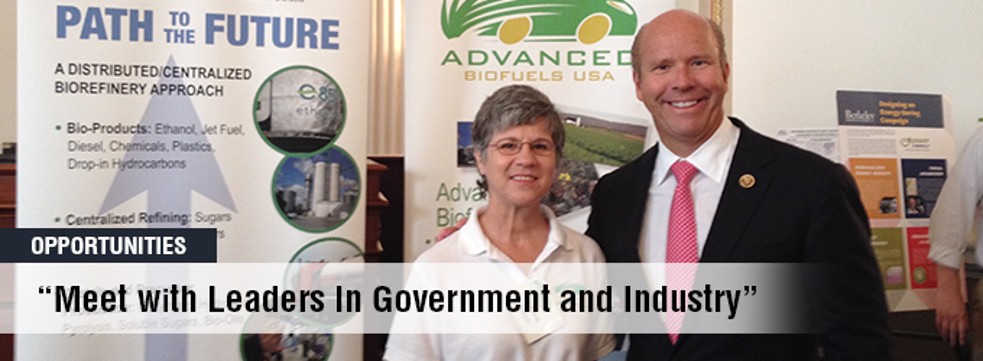






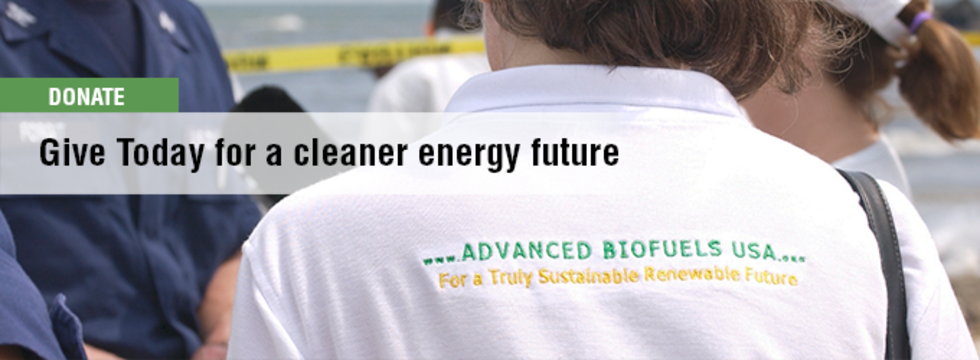



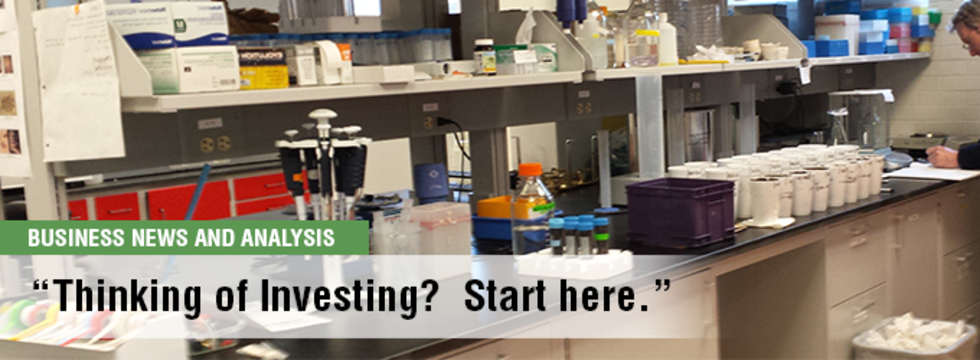






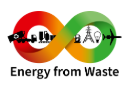


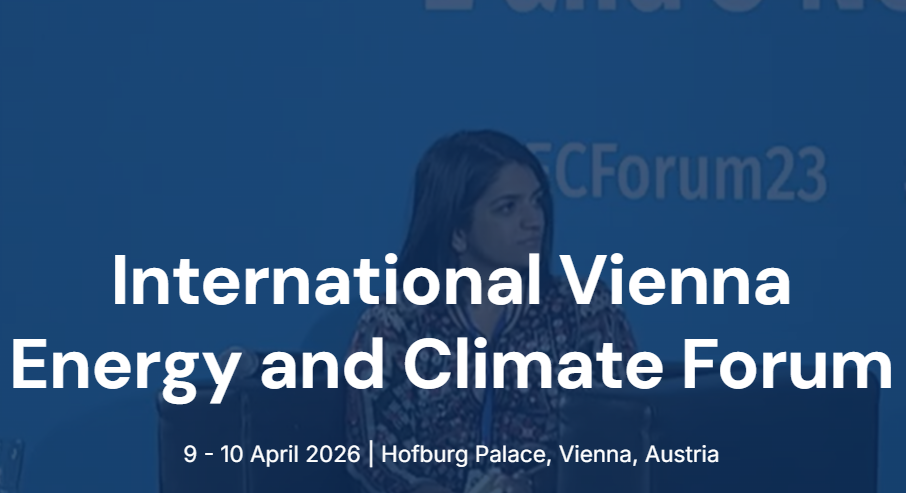




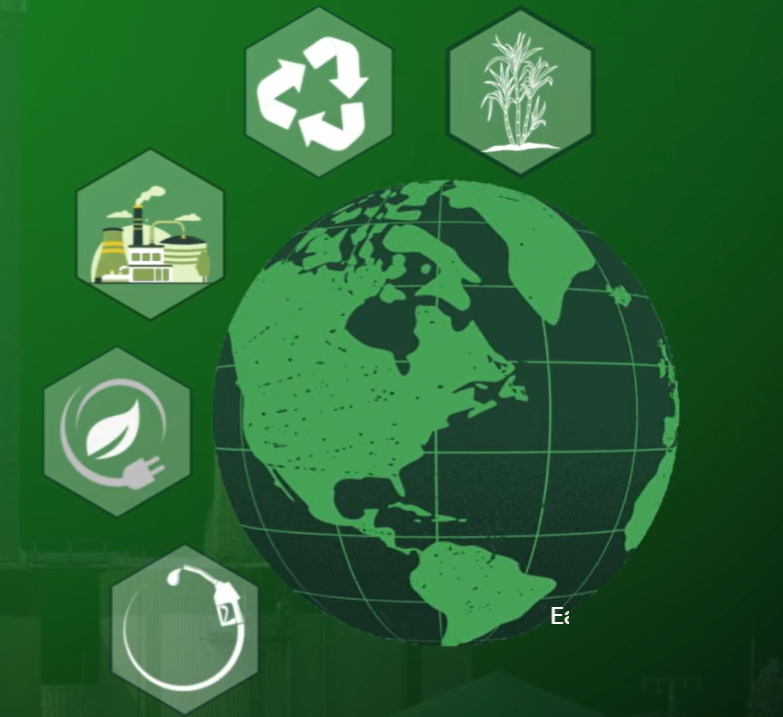






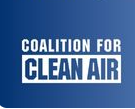
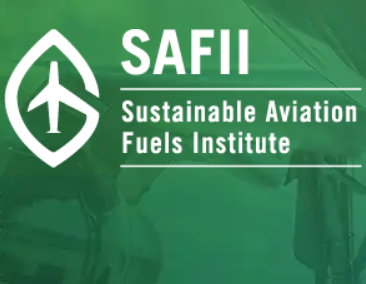




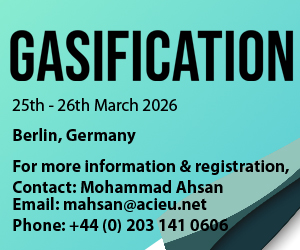

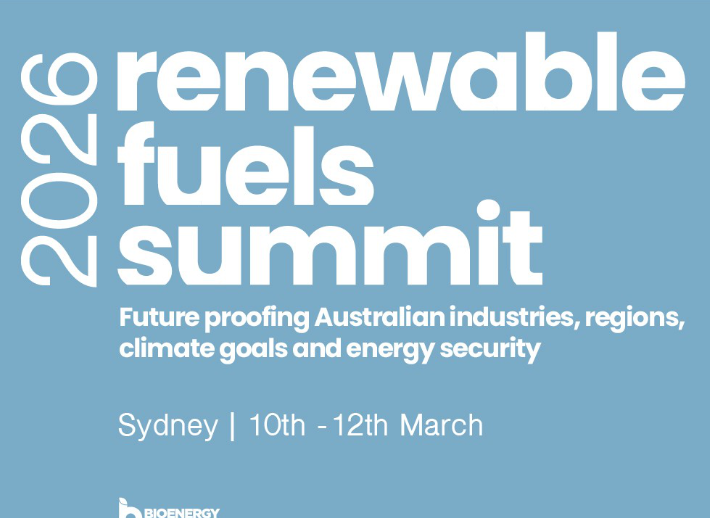

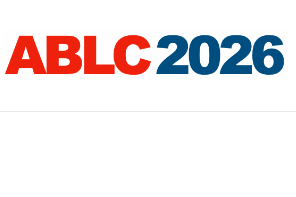






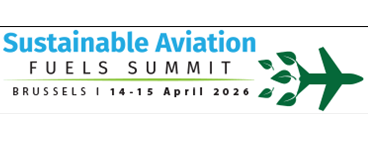

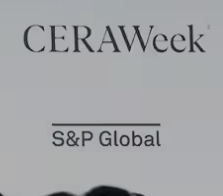

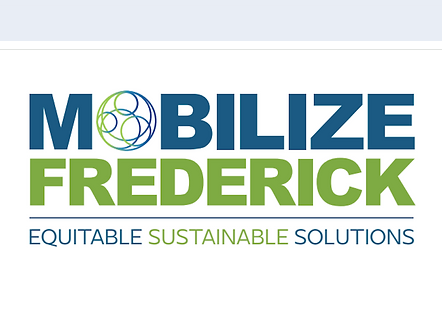
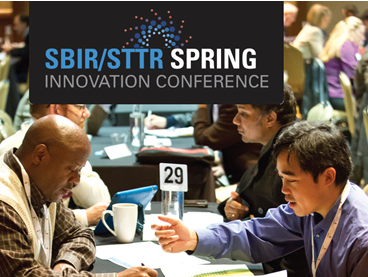






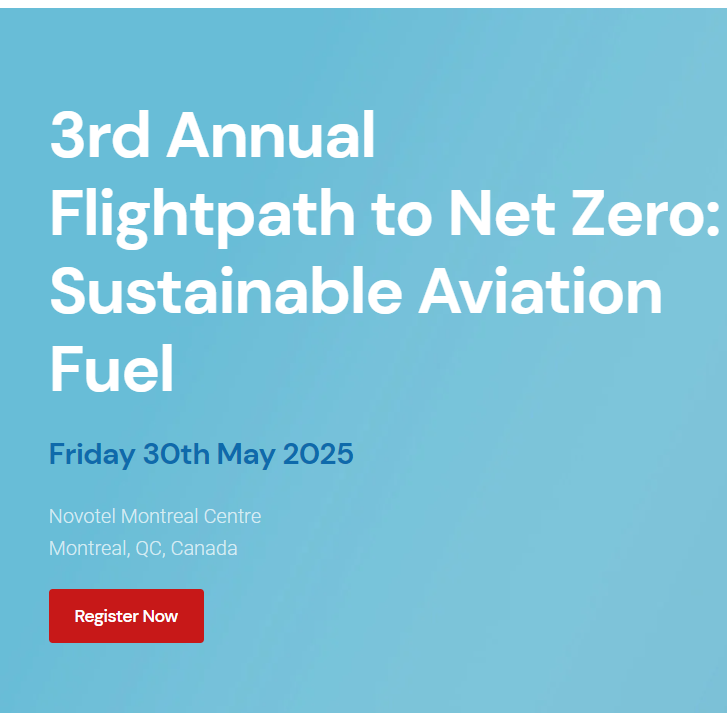












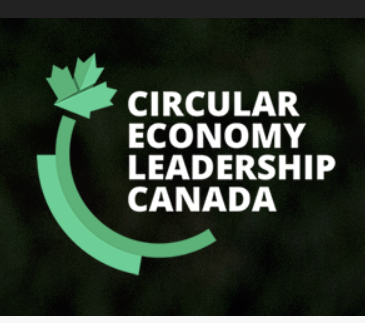
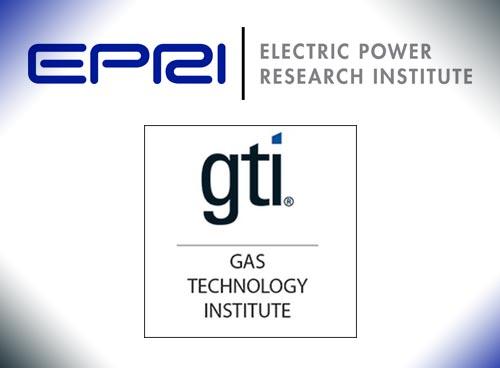

.jpg)




